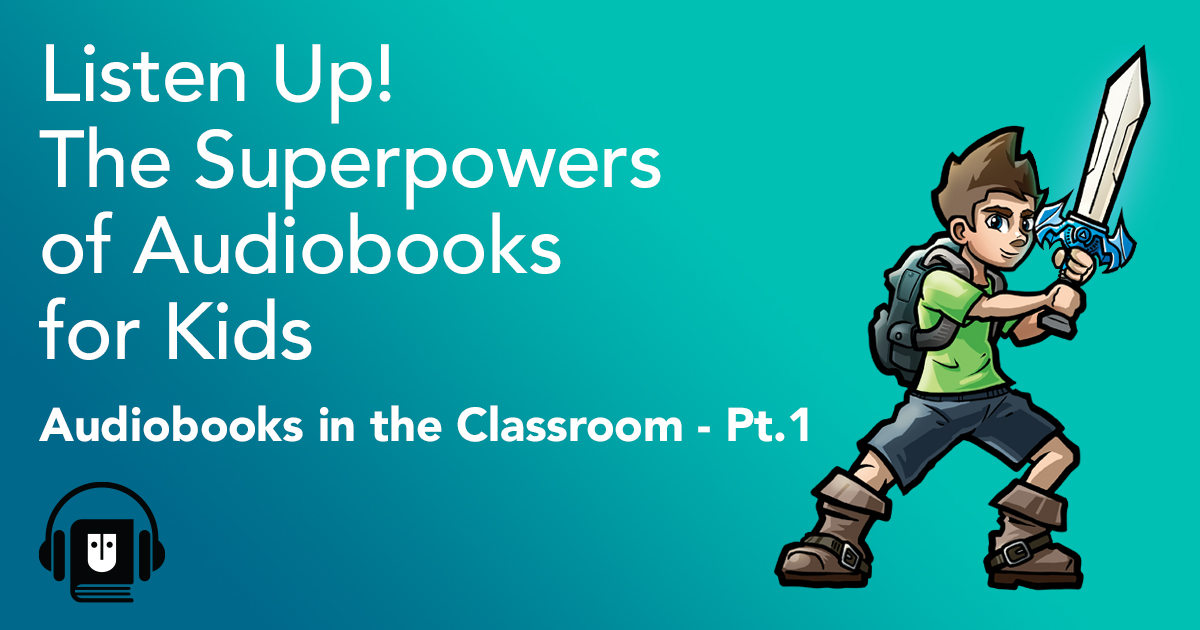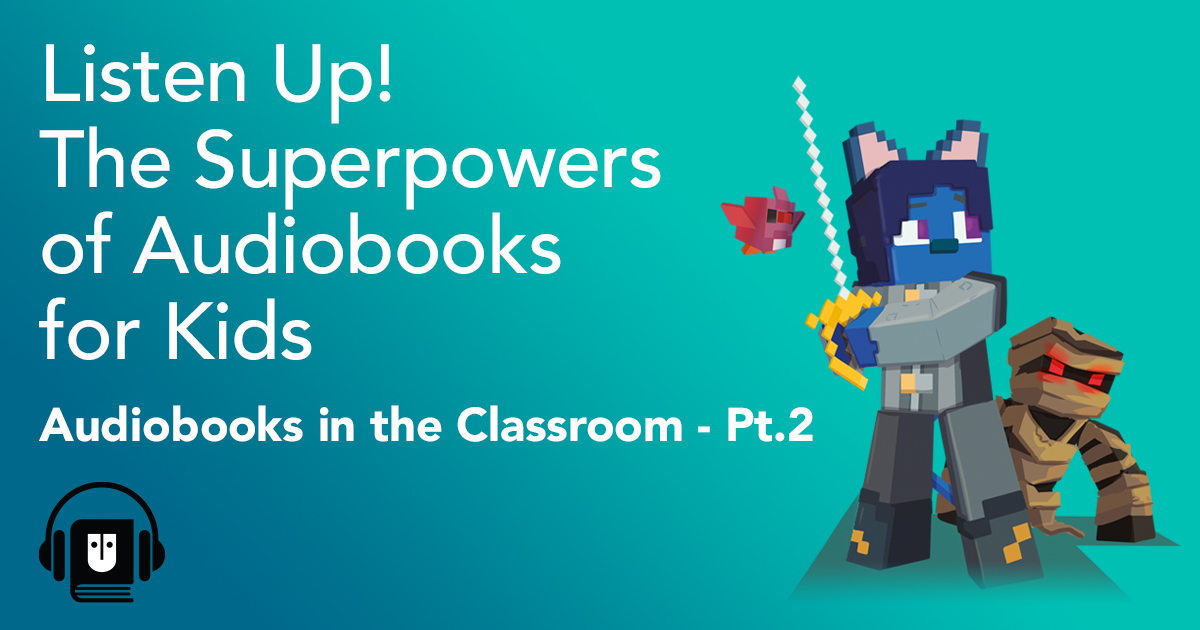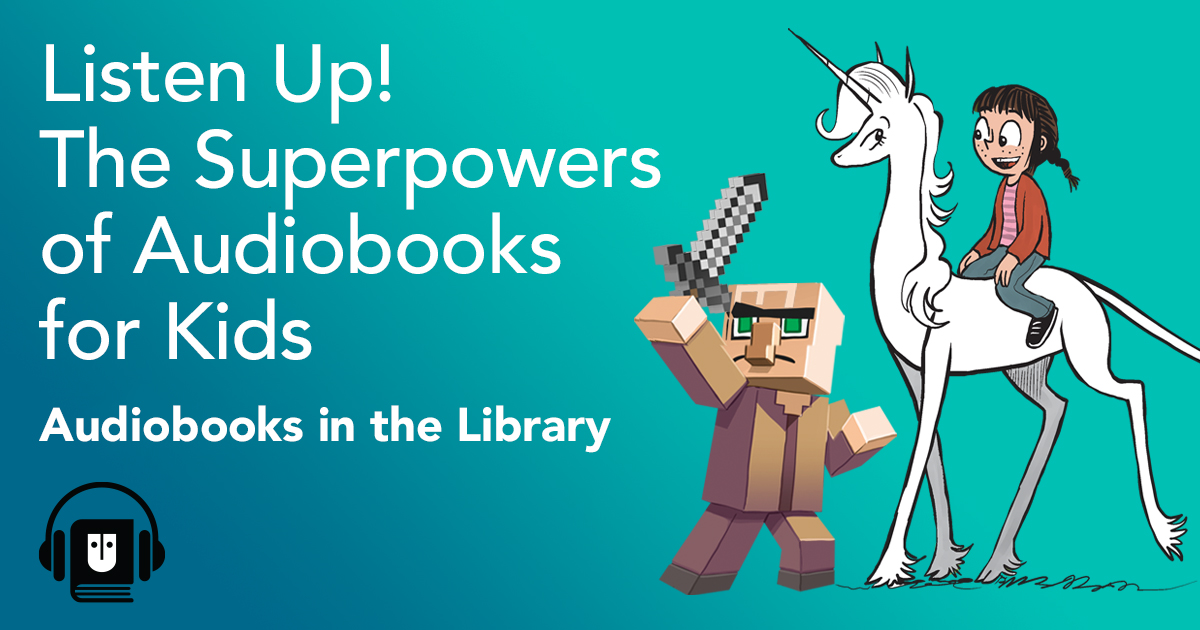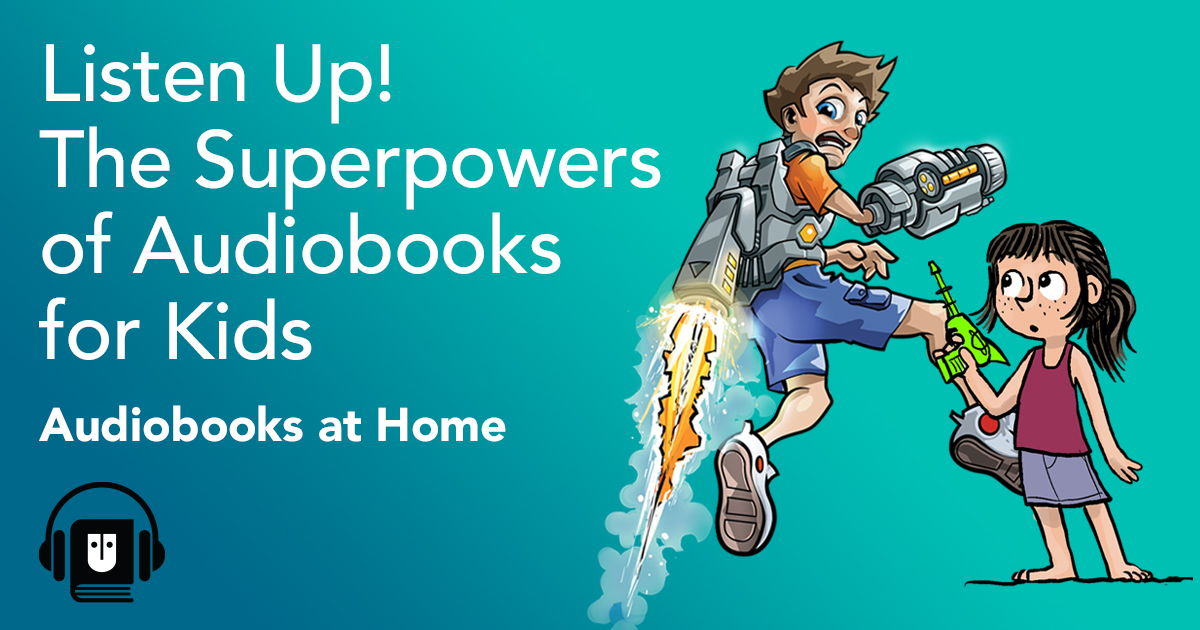
Welcome to the enchanting world of kids’ audiobooks! Whether you’re a parent, librarian, or educator, get ready to discover the superpowers hidden within those digital soundwaves. No capes required!
Kids’ audiobooks have been on the rise for ages, growing out of radio dramas and providing pitch perfect voices to long-beloved characters in children’s literature. What kid doesn’t love their parent reading a story out loud, with the perfect delivery for each character? An entire generation fell in love with audio by listening to Jim Dale’s take on Harry Potter. Picture Mom doing her best pirate accent or Dad channeling Bilbo Baggins.
Children’s audio got a giant boost during the peak days of the Covid-19 pandemic. A new generation of parents discovered streaming audio when bookstores and libraries were closed. There’s a plethora of apps and services that make listening to digital audio for kids safe and easy, both paid and free!
Even after our return to (somewhat) normal, children’s audiobooks are still enjoying a boom. According to the Audiobook Publishers Association’s annual audiobook sales report for 2022, sales of kids’ titles saw the fastest growth in all categories that year, up 41% from the previous year. A preference for listening to books even seems to be passed down from parents to children: 56% of the APA’s survey respondents who reported having children said their kids also listened to audiobooks. A whole new crew of listeners is learning from their parents that they can read even as they do their chores, take a road trip, or ride their bikes.
Far from being an alternative for “lazy readers,” human-read audiobooks actually offer unique benefits to their users, including young readers:
Part 1: Audiobooks in schools
Many schools now offer audiobook versions of the books included in their school libraries or classrooms, either as part of a curriculum or for outside-of-the-classroom reading. These options can assist teachers with meeting their students where they’re at — whether by preference, ability, or time constrictions. They can be valuable for all kinds of learners, including our friends with special circumstances.
Audiobooks for students with visual impairments
For students with visual impairments, the audio format can be a more portable and readily available alternative to braille transcriptions of print books or to screen readers. While audio may not always replace these formats, it’s a great option for leisure reading or required reading tied into a curriculum.
More and more, even visual books have audio equivalents, in which extra sound effects and editing are used to make beloved graphic novels and picture books equally entertaining to students who are visually impaired. Graphic novels as full-cast audiobooks are a great place to start exploring how magical sound editing can bring a story to new life in audio.
Unlocking literacy with audiobooks for emergent and reluctant readers
Audiobooks are a powerful tool for supporting emergent and reluctant readers, too! By providing access to books above their current reading level, audiobooks open the door to more advanced narratives and vocabulary. Hearing words spoken aloud can help readers connect the dots with how words are spelled in text. This exposure not only broadens students’ literary horizons but also nurtures an interest in reading, laying a foundation for lifelong learning and literacy.
The immersive and entertaining nature of audiobooks holds particular appeal for reluctant readers. Their storytelling and narration capture students’ attention and imagination, transforming reading from a chore into a pleasurable experience. As their interest and enjoyment grow, so too does their willingness to explore other reading options, fostering a positive outlook towards reading and learning. Audiobooks for reluctant readers are a silver bullet to help kids fall in love with reading.
Audiobooks represent a valuable resource for supporting new and unwilling readers on their literary journey. By offering access to engaging narratives and fostering fluency, audiobooks empower students to overcome reading barriers and unlock the joys of books. And as an inclusive and dynamic tool, audiobooks have the potential to turn reluctant readers into enthusiastic bookworms.
Further Reading:
School Library Journal: An Ear for Reading: Audiobooks Take Center Stage in the Classroom
Informed Literacy: The Benefits of Audiobooks for ALL Readers
Edutopia: How Audiobooks Help Emerging Readers and Inspire a Love of Books
Reading Rockets: Benefits of Audiobooks for All Readers
Libro.fm: 5 Ways to Use Audiobooks in the Classroom
ADDitude Mag: Heard Any Good Books Lately?
Pinna.fm: Why Podcasts and Audiobooks are an Incredibly Useful Tool For Kids With ADHD
Smart Girls With ADHD: ADHD and Me: Why Audiobooks Are Wonderful (and Not Cheating)
Read Brightly: Audiobooks for Both Neurotypical and Neurodivergent Tweens.
Every Library: Listening for Life: The Benefits of Audiobooks for Dyslexia
Learning Ally: The Benefits of Audiobooks
The Dyslexia Classroom: Why Use Audiobooks with Dyslexic Learners?
Audio In…



